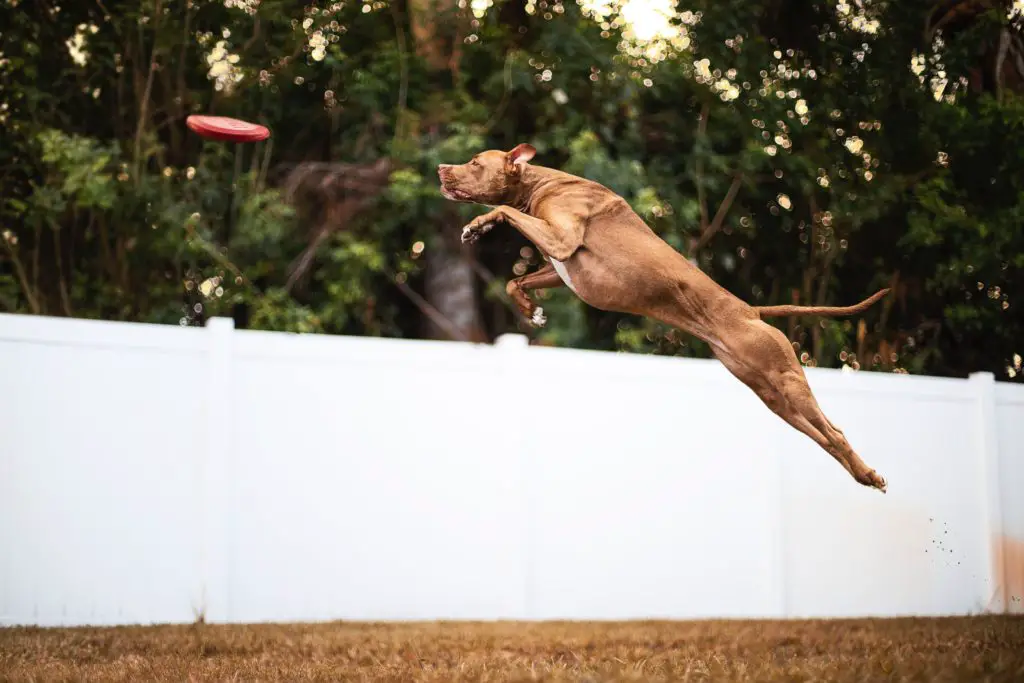Though there are many human foods dogs shouldn’t eat (like chocolate), they love being included in mealtime whenever they get the chance. It’s important to feed your dog safe, healthy foods that won’t upset their stomach. Are eggs a safe choice to feed your pup?
Yes, dogs can eat scrambled eggs every day. Eggs are packed with protein, fatty acids, vitamins, and nutrients that can be a healthy addition to a dog’s varied diet. They should only receive scrambled eggs as a treat, not as a full meal.
In the rest of this article, we’ll discuss the benefits and drawbacks of feeding your dog scrambled eggs, how to prepare them, and how often your dog can safely eat them.
Are Scrambled Eggs A Good Meal For A Dog?
Scrambled eggs are a healthy snack option for your pup. However, they don’t have enough nutrients to meet your dog’s daily needs, so eggs shouldn’t make up your dog’s whole meal.
Adding a small amount of eggs to your dog’s healthy diet can help ensure they are receiving all the vitamins and minerals they need to thrive.
There are numerous benefits to feeding your dog scrambled eggs. For starters, they are packed with vital nutrients, vitamins, and nutrients:
- Vitamin A
- Protein
- Iron
- Folate
- Fatty Acids
- Vitamin B12
- Selenium
- Riboflavin
These nutrients can help keep your dog healthy and feeling great, especially when combined with their normal meals.
Just like in humans, these nutrients may help with skin and coat health and help bones stay strong.
Of course, there are also a few drawbacks to feeding your dog eggs. When fed in excess, the high cholesterol level in eggs can cause obesity in dogs.
In addition, some dogs are sensitive to eggs and may even have an allergic reaction after eating them.
Because of this, it’s important to give your dog a very small amount of eggs first to see how their body reacts.
If your dog is uncomfortable after eating eggs, it’s best to find other treats to add to their routine.
Can They Have It Every Day?
Dogs can have scrambled eggs every day as long as the eggs don’t make up a significant portion of their diet. This will help keep your dog from becoming overweight.
Instead, try offering a bit of scrambled eggs as a reward for good behavior, as a top dressing on their normal meal, or as a snack on long road trips.
How To Make Scrambled Eggs For Dogs?
Making scrambled eggs for your dog is quick and easy.
- Break an egg into a small bowl; beat until smooth.
- Pour the egg into a preheated skillet. Don’t use butter or cooking spray, as these add unnecessary fat to your dog’s diet.
- Cook eggs on medium-high heat, stirring occasionally, until the egg has set. Make sure the egg is thoroughly cooked with no liquid remaining.
While this method of cooking scrambled eggs may seem plain, your dog will think it’s delicious!
They aren’t accustomed to the unhealthy amount of fat typically used to prepare human food, so they’ll love plain scrambled eggs.
How Much Scrambled Eggs To Give Your Dog? How Often?
You should always start off by giving your dog a tiny amount of scrambled eggs. Cook a plain scrambled egg, give your dog a piece or two of it, and see how they react.
You can store the leftover egg in a resealable bag in the fridge until you know if your dog’s stomach can handle more.
If you plan to feed your dog scrambled eggs every day, only give them a small amount. A great way to feed eggs that your dog is guaranteed to love is sprinkled on top of his kibble.
This works especially well with dogs who are picky eaters, as the addition of eggs can sometimes convince them to eat the rest of their food.
Snacks should never make up more than 10% of your dog’s daily diet.
If you have a large breed of dog, like a German Shepherd or Great Dane, it’s probably okay to give your dog one scrambled egg a day, but any more than that might make your dog too portly.
If you have a smaller breed of dog, you should cut the amount at least in half.
Can Dogs Eat Scrambled Eggs With Milk Or Cheese?
No, dogs shouldn’t eat scrambled eggs with milk or cheese. While some dogs can handle dairy, many pups are lactose intolerant.
This means that adding milk or cheese to their scrambled eggs may give them an upset tummy.
Adding milk and cheese will also increase the amount of fat in the eggs.
This can make it difficult to keep your dog’s weight in check, leading to further health issues down the line. Your dog won’t mind plain eggs–they’ll be incredibly grateful for the snack.
How About Butter, Salt, And Pepper?
Dogs shouldn’t eat scrambled eggs made with butter, salt, or pepper. While humans are used to eating these ingredients, they may wreak havoc on your dog’s health.
For example, salt may cause adverse affects like salt poisoning or dehydration – certainly not ideal.
Butter is a bad idea to add to your dog’s scrambled eggs because of the increased fat content. Dogs can have a hard time digesting fat.
It can also quickly lead to problems with weight gain. While portly pups are cute, being overweight is dangerous for dogs.
It increases pressure on bones, joints, and ligaments, which may cause injuries. Being overweight may also lead to heart problems.
To help your dog live the longest, healthiest possible life, it’s best to keep butter out of their scrambled eggs.
Related Post: At What Age Can Puppies Eat Eggs?(Raw, Boiled, Scrambled)
Final Thoughts
When cooked properly and fed in moderation, scrambled eggs are a great addition to your dog’s diet.
The vitamins and nutrients in eggs can help your dog look and feel their best.
Just make sure to start off by giving them a small amount of eggs to see how their body reacts.

My name is Katie, and I have had different pets at home for as long as I can remember. While I can definitely say I love all animals in general, my heart belongs to cats and dogs. I know you are supposed to choose one or the other, but I could never really decide. I’ve also owned hamsters and fish when I was a kid, and they filled my childhood with very delightful memories.





